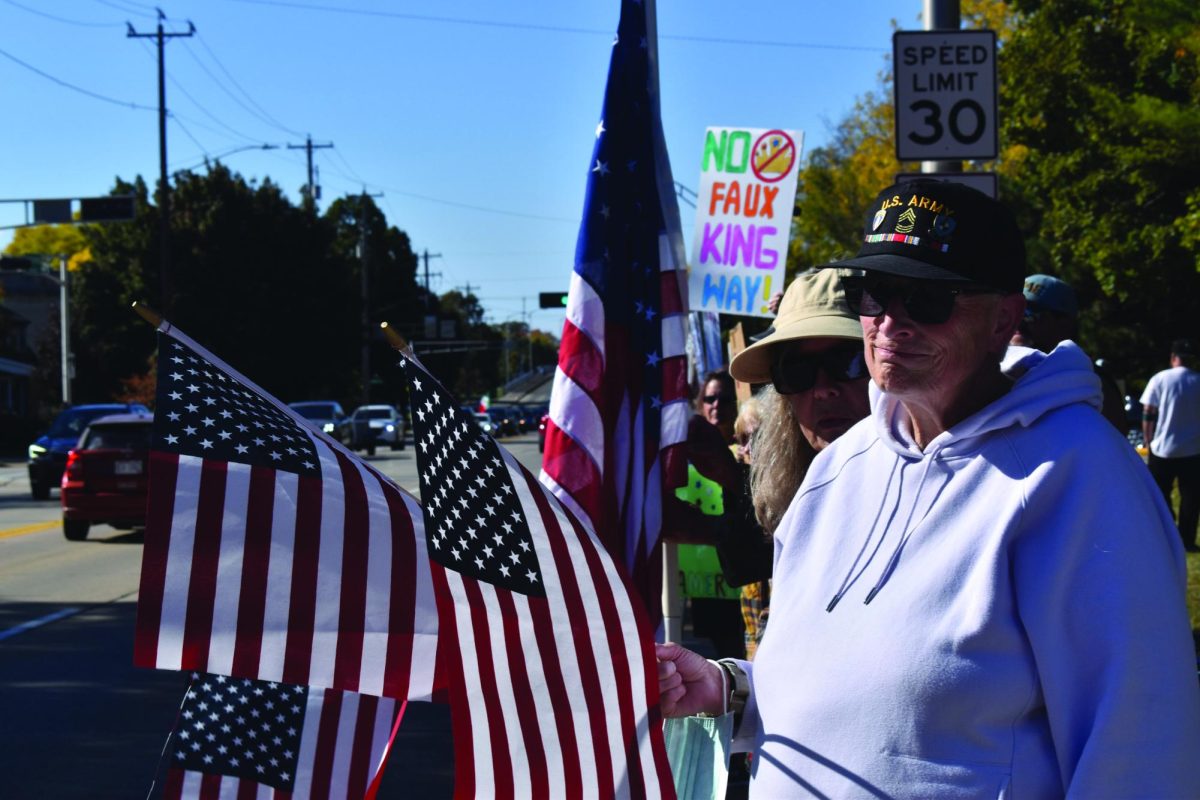The UW Oshkosh American Democracy Project sponsored a discussion regarding the Campus Free Speech Act UWO students were invited to participate in.
According to the Campus Free Speech Act, the bill aims to create a set of disciplinary rules for UW System institutions to follow when dealing with anyone who engages in “violent, abusive, indecent, profane, boisterous, obscene, unreasonably loud or other disorderly conduct that interferes with the free expression of others.”
UWO communication professor and host of the discussion Anthony Palmeri said this kind of open discussion is what universities are all about.
“I think campuses require a thriving, open and free speech environment to meet our mission, which is to discover the truth,” Palmeri said.“Anything that government might do to make it more difficult to meet that mission needs to be learned about. I’m concerned that the Free Speech Act, in the name of defending free speech, might actually limit it.”
UWO students listened as each representative explained why they felt the bill was or was not necessary for the UW System. Afterwards, students were encouraged to ask questions and share their opinions on what free speech means to them.
UWO junior Brandon Colligan said he believes free speech includes equality for everyone on campus and the Campus Free Speech Act may not deliver that.
“Free speech to me is upholding the rights, not only the rights of speakers who come to campus, but also the rights of students to express their concerns with the speakers on campus, in a nonviolent fashion, of course, and upholding the principles that are in the First Amendment,” Colligan said.
Colligan said he does not agree with the bill because of the tactics that are used to enforce free speech for all.
“I think the bill does the opposite of what it seeks to achieve,” Colligan said. “If you’re trying to promote free speech, you can’t try to scare people or create mechanisms that reduce other people’s free speech. I think it’s contrary to its mission.”
UWO student Leah Ceranski said the bill has potential to be a good idea, but at the current moment, there are too many corrections that need to be made.
“I think [the bill] needs a little refurbishing before I could completely back it, but I think there needs to be something like this in place,” Ceranski said. “I think putting this in place will make it more widely accepted or known what free speech is and allow other people’s opinions to be heard.”
UWO senior Elyssa Hochevar said she thinks free speech is being able to express yourself from whatever stance without being stopped for your opinions.
Hochevar said the reason this bill is such a big deal is because it’s making sure everyone is heard.
“I think it’s monumental in the fact that it allows free speech to be heard and yet making sure that each side is heard,” Hochevar said.
Wisconsin State Assemblyman Gordon Hintz (D-Oshkosh) said it’s important for students to be aware of what the bill is all about because it deals with them specifically and how their education will be affected.
“This is a bill that directly impacts them [students] and what they’re able to do, how to conduct themselves and what the disciplinary actions are,” Hintz said. “Bills like this have a chilling effect on education.”
Hintz said the bill could cause more harm than just preventing free speech, based on how underdeveloped the bill is.
“I think there are consequences that go well beyond the intent of the bill,” Hintz said. “I think the intent maybe to pass a law that by the perception of it will be enough to chill or squelch free speech, but I think if you look at the terms, how subjective they are or how inefficient the process would be, it’s not realistic to think that these policies could be enforced in any manner.”
Hintz said the schools look to create their own policy without the need of legislators to get involved with university matters.
“It opens a can of worms that I think again has consequences that are far worse than any problem we have now,” Hintz said.








